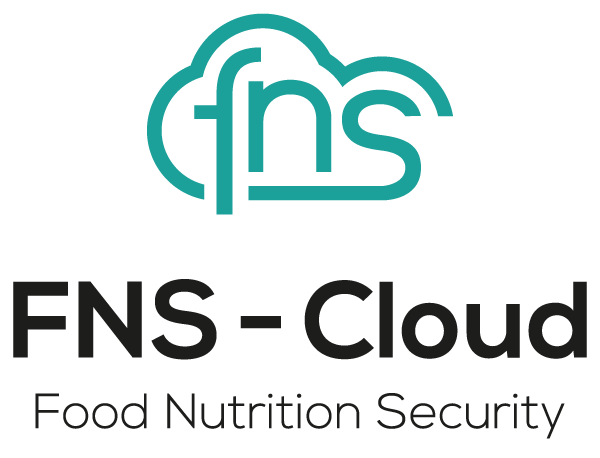Research projects
The department of Bioinformatics in involved in several projects.
Ongoing projects
NUTRIOME: Data-driven precision nutrition (MSCA)
NUTRIOME is a Marie Skłodowska-Curie actions (MSCA) Doctoral Network of the Horizon Europe. The network supports the career development and training of 10 Research Doctoral Candidates (RDCs) in an international and cross-disciplinary environment.
The focus of NUTRIOME is to train 10 RDCs in data-driven precision nutrition using two complementary training strategies to learn how to handle and combine multi-omics data, to evaluate the response to foods and diets.
We will provide multi-disciplinary training, so that the RDCs:
- are able to utilize, share and disseminate public available multi-omics data,
- know the regulations and routine for collaborative data sharing in a FAIR manner, and
- are experts in analyzing, integrating and interpreting increasingly complex data.
This will provide a new competence profile to resolve a bottleneck for development of personalised preventive solutions for improved health in Europe.
- Funding: NUTRIOME is a Marie Skłodowska-Curie actions (MSCA) Doctoral Network of the Horizon Europe (GA no. 101119497).
- Duration: 1 Oct 2023 - 30 Sept 2027
- BiGCaT project members:
- dr. Susan Coort (WP6 leader and PhD supervisor)
- Guangya Shen (PhD candidate)
- NUTRIOME website: link
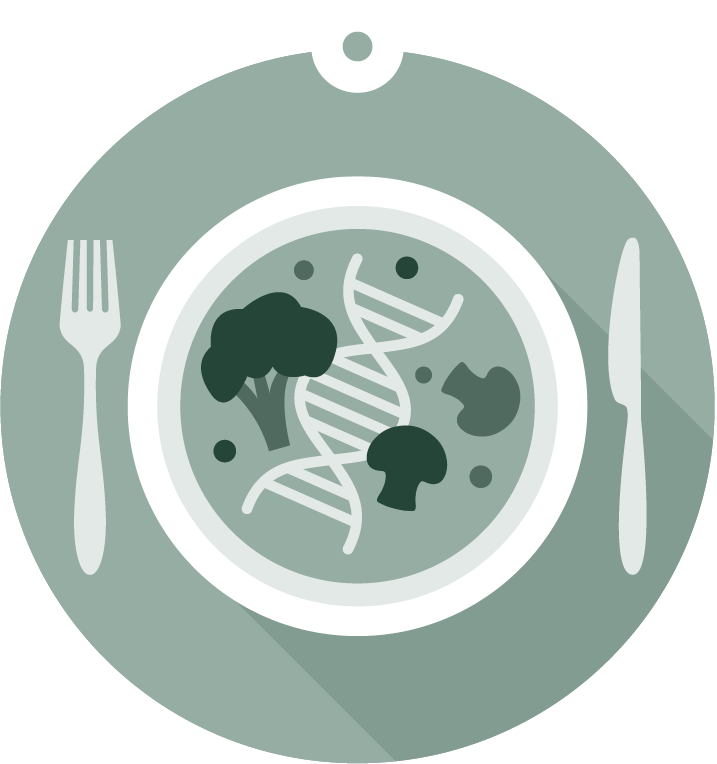
CDK2024 (NWO)
The Chemistry Development Kit in 2024: improving cheminformatics research (NWO)
Cheminformatics is the research field that deals with information about chemical systems. This includes the chemical structure which is used in computational chemistry where quantum chemistry is too complex. The Chemistry Development Kit (CDK) was one of the first Open Science libraries in chemistry, co-founded in The Netherlands. The source code goes as far back as 1997 and has been maintained for more than 25 years. The CDK is used by many tools in drug discovery, computational toxicology, and bioinformatics. This project will develop improvements to the core library and update tools using the CDK to use the latest release.
- Funding: This project is funded by NWO under grant number OSF23.2.097.
- Duration: 1 Apr 2024 - 31 Mar 2025
- BiGCaT project members:
- dr. Egon Willighagen
- Grant proposal: https://doi.org/10.3897/rio.10.e124884

Virtual Human Platform for safety assessment (VHP4Safety)
The mission of the Virtual Human Platform is to improve the prediction of the potentially harmful effects of chemicals and pharmaceuticals based on a holistic, interdisciplinary definition of human health by developing the Virtual Human Platform and accelerating the transition from animal-based testing to innovative safety assessment. The Virtual Human Platform integrates data on human physiology, chemical characteristics, and perturbations of biological pathways.
The Virtual Human Platform addresses the emerging societal challenge of the transition to animal-free safety assessment, by integrating various scientific disciplines in the consortium and working with all stakeholders towards implementation and societal acceptance of an approach to chemical safety assessment that is based on human data rather than animal data.
- Funding: VHP4Safety – the Virtual Human Platform for safety assessment project NWA 1292.19.272 is part of the NWA research program ‘Research along Routes by Consortia (ORC)’, which is funded by the Netherlands Organization for Scientific Research (NWO).
- Duration: 1 June 2021 - 31 May 2026
- BiGCaT project members:
- Prof. Dr. Chris Evelo (PI)
- Dr. Egon Willighagen (PI)
- Dr. Marvin Martens (Postdoc)
- Dr. Ozan Cinar (Postdoc)
- Jente Houweling (PhD candidate)
- Website: https://vhp4safety.nl/
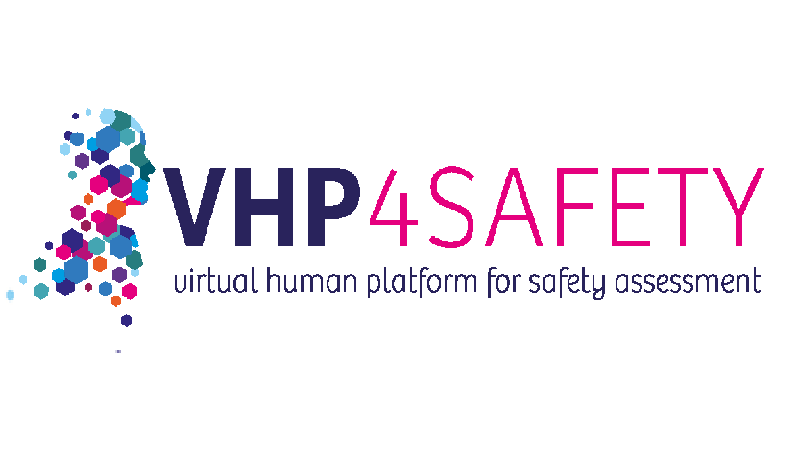
EpiLipidNET (COST Action)
EpiLipidNET aims to build and maintain a multidisciplinary pan-European network of researchers, clinicians, and enterprises working in the field of lipidomics and epilipidomics. This will boost a hub of research excellence, advanced knowledge, and technology transfer, promote a high level of training for young researchers, and facilitate clinical translation.
- Funding: COST (European Cooperation in Science & Technology) - n°CA19105
- Duration: 13 Oct 2020 - 12 Oct 2024
- BiGCaT project members:
- dr. Egon Willighagen (MC member, co-lead WG4)
- dr. Martina Summer-Kutmon (MC Subsitute)
- Denise Slenter (PhD candidate)
- Website: https://www.epilipid.net/
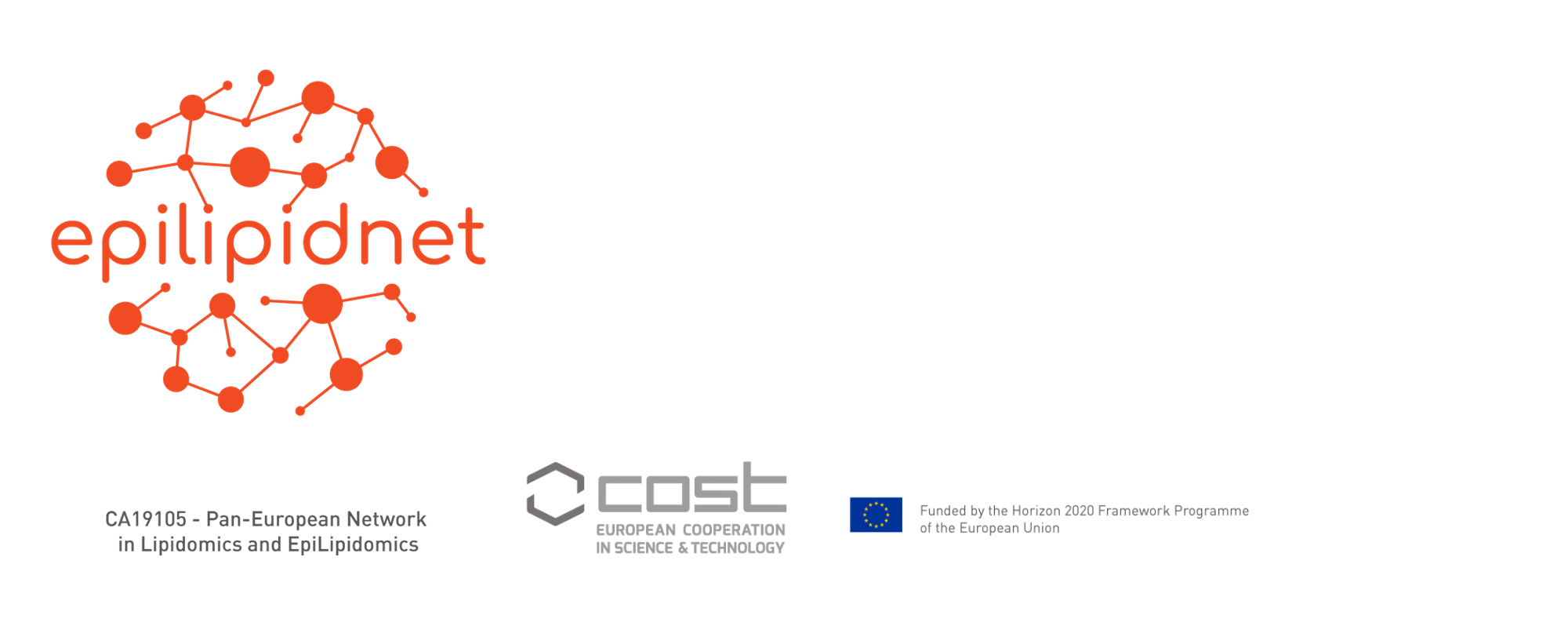
WikiPathways: COVID-19 pathway models (ZonMw)
Identification of underlying mechanisms explaining differences in host immune response, disease severity, and detection of mechanisms for targeted (drug) treatment. WikiPathways is an established online database for molecular pathways which is maintained by Maastricht University. The database offers human and machine-readable pathway models to support data analysis for biomedical and clinical researchers. New information is added regularly which keeps it up to date and therefore helps to support drug development in the different phases of COVID-19.
- Funding: This project is funded by ZonMw under project n°10430012010015.
- Duration: 1 Sep 2020 - 31 Aug 2022
- BiGCaT project members:
- dr. Martina Summer-Kutmon (PI)
- dr. Friederike Ehrhart (co-PI)
- prof. dr. Chris Evelo
- dr. Egon Willighagen
- dr. Susan Steinbusch-Coort
- dr. Nhung Pham (Postdoc)
- Finterly Hu (Scientific programmer)
- Website: ZonMw website

Safe-by-Design for Nano (SbD4Nano, H2020)
A major challenge for the global nanotechnology sector is the development of safe and functional engineered nanomaterials (ENMs) and nano-enabled products (NEPs). In order to minimize the risks to human and environmental health during the engineering of NEPs the goal of the Safe-by-Design for Nano (SbD4Nano) project is to create a novel e-infrastructure for the definition, performance testing and implementation of Safe-by-Design (SbD) approaches in the nanotechnology supply chains.
- Funding: This project is funded by European Union’s Horizon 2020 Programme under grant agreement n°862195.
- Duration: 1 Apr 2020 - 31 Mar 2024
- BiGCaT project members:
- dr. Egon Willighagen (PI)
- dr. Jeaphianne van Rijn (Postdoc)
- Marvin Martens (PhD candidate)
- Website: https://www.sbd4nano.eu/
- CORDIS: 862195

European Joint Programme on Rare Diseases (EJP RD)
The European Joint Programme on Rare Diseases (EJP RD) is a large European project that works on improving bioinformatics infrastructure, analysis, and diagnosis workflows for rare genetic diseases.
BiGCaT leads the systems biology research work package. In this work package we are creating and curating rare disease pathways on WikiPathways (rare disease community), developing and analyzing multi-omics data, and working on the integration of environmental, drug, and toxicity data.
- Funding: This project is funded by European Union’s Horizon 2020 Programme under grant agreement n°825575.
- Duration: 1 Jan 2019 - 30 Aug 2024
- BiGCaT project members:
- Chris Evelo (PI)
- Friederike Ehrhart (co-PI)
- Aishwarya Iyer (PhD candidate)
- Denise Slenter (PhD candidate)
- Woosub Shin (former PhD candidate)
- Website: https://www.ejprarediseases.org
- CORDIS: 825575

Clinical Genetics Collaboration on Inherited Metabolic Disorders (IMDs)
A recent collaboration between the biochemical genetic lab of MUMC and the bioinformatics department (BiGCaT, NUTRIM) has led to three successful projects.
With this successful collaboration we have created an even stronger bridge between these two expertise fields, and inspire and support other researchers in converting (existing) drawings of pathway into computer readable models to form new path(way)s, enabling (automated) data analysis.
The first project is a systems biology integration of existing clinical data for pyrimidine and urea cycle metabolic disorders (IMDs), which were linked to pathway models and biomarker data (preprint link available here).
Furthermore, a recently published version of the well-known reference book "Physician's Guide to the Diagnosis, Treatment, and Follow-Up of Inherited Metabolic Diseases" (edited by prof. Nenad Blau, ISBN: 978-3-030-67726-8, already available as an eBook in the University Library), including an Open Access chapter on integrating pathway knowledge with clinical data from the perspective of the clinical experts. We have created a portal as an integrative overview of existing IMD pathways, which are also used by the database IEMBase (a digital version of the aforementioned book) and the European Joint Programme on Rare Diseases (EJP-RD including 100 pathway models available here).
- Duration: This project started in 2017.
- BiGCaT project members:
- Denise Slenter (PhD candidate, PI)
- Dr Egon Willighagen (assistant professor)
- Dr Martina Kutmon (assistant professor)
- Project Website: https://bigcat-um.github.io/IMD-PUPY
Lipid Pathway Curation by Domain Experts
The primary objective is to curate high-quality biochemical knowledge (reactions/enzymes/ genes) on lipid metabolism, working with lipid experts worldwide.
The data will be housed in a shared resource created in partnership between two ELIXIR data services, LIPID MAPS (ELIXIR-UK), and WikiPathways (ELIXIR-NL).
- Duration: This project runs from August 2022 for one year.
- BiGCaT project members:
- Denise Slenter (PhD candidate, WP-lead)
- Dr Egon Willighagen (assistant professor)
- Project Website: https://elixir-europe.org/internal-projects/commissioned-services/2022-lipid-pathways
ELIXIR Service Bundle: Systems Biology for Rare Diseases
This service bundle collects a group of use cases on systems biology for rare disease studies and provides possible solutions with workflows and software tools including available tutorials and additional information material.
Use cases for this service bundle are listed here as follows:
- Rare disease pathways – identifying and integrating knowledge on rare disease molecular pathways
- Find information about a specific variant from (different) resources
- Analysis of (multi) omics data and creation and analysis of rare disease networks
- Integration of toxicology, lifestyle and nutrition data
- FAIR data and workflows
- Funding: This project is funded by European Union’s ELIXIR Rare Disease Community Implementation Study.
- Duration: 1 Jan 2022 - 31 Dec 2023
- BiGCaT project members:
- Friederike Ehrhart (PI)
- Website: https://elixir-europe.org/services/service-bundles/rare-diseases
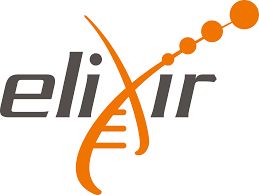
STREAMLINE
Neurodevelopmental disorders (NDDs) caused by alterations in early brain development are a group of complex and heterogeneous disorders that give rise to the psychiatric conditions such as autism spectrum disorders, intellectual disability, schizophrenia and bipolar disorder. NDDs have a high socio-economic impact and patients with NDDs and mental health problems are geographically dispersed. Thus, establishment of high capacity regional centres with equivalent research capacity and codes of practice is needed in order to build global research activity. The goals of STREAMLINE are to enhanced strategic networking and reinforce research and innovation potential of the Institute of Molecular Genetics and Genetic Engineering (IMGGE) in order to develop IMGGE as a high capacity hub for research of NDDs in the Western Balkans which is able to integrate with similar centres in Europe. This will be achieved by twinning IMGGE with three top-class research institutions in Europe: Cardiff University, University of Maastricht and Centre for Research and Technology. The project objectives are:
a) to enhance the current and scale up the overall strategic networking activities between the IMGGE and internationally-leading European partners and regional partners;
b) to raise the research profile of research stuff and scientific attractiveness of IMGGE in the field of NDDs;
c) to strengthens research management capacities and administrative skills of the IMGGE staff and
d) to become a regional leader in innovations tackling NDDs.
Objectives will be achieved through networking, staff exchanges, training, summer schools, symposia, workshops, participation at conferences and dissemination in scientific community, industries and public. Twinning with partners will provide access to new research avenues, creativity, development of new approaches and increased mobility (inwards and outwards) of qualified scientists. Coordinator: Institute of Molecular Genetics and Genetic Engineering, University of Belgrade (IMGGE), Serbia Partners: -Cardiff University (CU), United Kingdom -Maastricht University (UM), Netherlands – Centre for Research & Technology Hellas (CERTH), Greece
- Funding: This Project has received funding from European Union, under the Horizon Europe programme Widening Participation and Spreading Excellence, Grant Agreement number: 101060201.
- Duration: 1 Jul 2022 - 30 Jun 2025
- BiGCaT project members:
- Website: https://streamlineproject.rs/
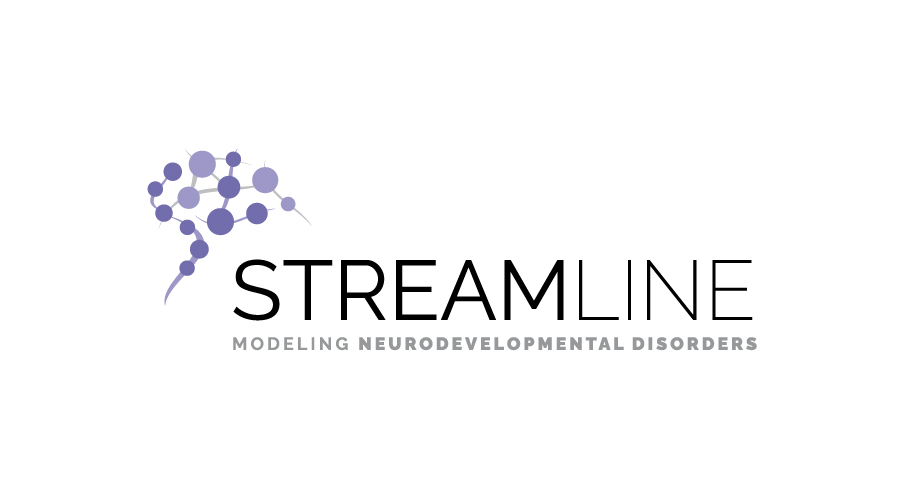
Project index
- TXG-MAP
- NUTRIOME: Data-driven precision nutrition (MSCA)
- CDK2024 (NWO)
- Virtual Human Platform for safety assessment (VHP4Safety)
- EpiLipidNET (COST Action)
- WikiPathways: COVID-19 pathway models (ZonMw)
- Safe-by-Design for Nano (SbD4Nano, H2020)
- European Joint Programme on Rare Diseases (EJP RD)
- Clinical Genetics Collaboration on Inherited Metabolic Disorders (IMDs)
- Lipid Pathway Curation by Domain Experts
- ELIXIR Service Bundle: Systems Biology for Rare Diseases
- STREAMLINE
Past projects
eNanoMapper (FP7)
eNanoMapper was a 3-year project that worked on the development of a nanosafety ontology and database software for nanosafety data. To date, multiple NanoSafety Cluster projects are extending on the legacy of this project.
- Funding: This project was funded by European Union’s Horizon 2020 Programme under grant agreement n°604134.
- Duration: 1 Feb 2014 - 31 Jan 2017
- BiGCaT project members:
- Website: https://enanomapper.net/
- CORDIS: 604134
OpenRiskNet (H2020)
OpenRiskNet was a 3-year project with the main objective to develop an open e-Infrastructure providing resources and services to a variety of communities requiring risk assessment, including chemicals, cosmetic ingredients, therapeutic agents, and nanomaterials. OpenRiskNet is working with a network of partners, organized within an Associated Partners Programme.
- Funding: This project was funded by European Union’s Horizon 2020 Programme under grant agreement n°731075.
- Duration: 1 Dec 2016 - 30 Nov 2019
- BiGCaT project members:
- Chris Evelo (PI)
- Marvin Martens (PhD candidate)
- Website: https://openrisknet.org/
- CORDIS: 731075

PancCanNet (ZonMw)
PancCanNet is an "Enabling Technologies Hotels" project between the Tumor Immuno-Pathology Lab at Erasmus MC Rotterdam (project leader: Dana Mustafa), Department of Bioinformatics (BiGCaT) at Maastricht University, and Omnigen.
The aim of this project is the creation of a biological pathway community portal (PancCanNet) as a unified knowledge base for pancreatic cancer. The portal enables expert clinical researchers (medical and scientific) to add and curate pathway content and allows programmatic access for downstream knowledge integration, data analysis, and data visualization.
- Funding: This project was funded by ZonMw under grant n°435005037 (Enabling Technologies Hotels).
- Duration: 1 Nov 2020 - 31 Oct 2021
- BiGCaT project members:
- Martina Summer-Kutmon (PI)
- Lauren Dupuis (former Postdoc)
- Woosub Shin (former PhD candidate)
- Duygu Dede Sener (Postdoc)
- Website: WikiPathways portal
HELIS (Interreg)
HEalth and LIfe Sciences Academy
In April 2018, the cross-border project HELIS Academy is launched to optimize the Life Sciences & Health (LSH) cluster in the Netherlands and Flanders. The main purpose is to bridge the gap between the skills and knowledge of graduate students and the required competencies in life sciences jobs. The project focuses on the development and alignment of teaching programs to increase the industry readiness level of the profiles required. This project is financed by the European Fund for Regional Development and co-financed by the Dutch Ministry of Economic Affairs and Climate Policy.
- Funding: This project was funded by Ministerie van Economische zaken, Provincie Antwerpen, Provincie Limburg & Provincie Noord-Brabant
- Duration:
- BiGCaT project members:
- Chris Evelo (PI)
- Lauren Dupuis (former Postdoc)
- Website: https://helisacademy.com/
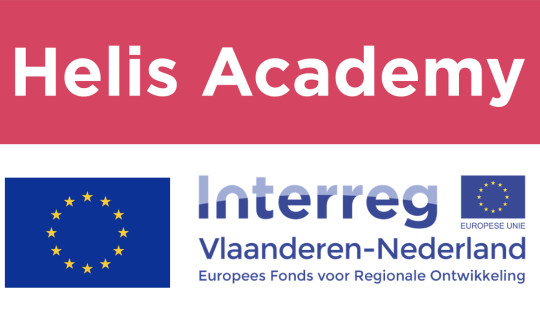
FAIRplus (IMI)
The volume and complexity of life science data being produced by research are growing exponentially. To gain the most benefit from this data, it needs to be available to researchers. Unfortunately, it is often inaccessible, annotated inconsistently, and difficult to share because it is in proprietary formats.
The FAIRplus project aims to address these issues by developing guidelines and tools to make data FAIR (findable, accessible, interoperable, reusable).
Funding: This project is funded by Innovative Medicines Initiative 2 Joint Undertaking under grant agreement n°802750
Duration: 1 Jan 2019 - 30 Jun 2022
BiGCaT project members:
Chris Evelo (PI)
Egon Willighagen
Lucas Uberti-Bona Marin (Scientific programmer)
Tooba Abbassi-Daloii (post-doc)
Website: https://fairplus-project.eu/
CORDIS: 802750
BridgeDb and Wikidata
A powerful combination generating interoperable open research
Like humans have a unique social security number and different phone numbers from various providers, so do proteins and metabolites have a unique structure but different identifiers from various databases. BridgeDb is an interoperability platform that allows combining these databases, by matching database-specific identifiers. These matches are called identifier mappings, and they are indispensable when combining experimental (omics) data with knowledge in reference databases. BridgeDb takes care of this interoperability between gene, protein, metabolite, and other databases, thus enabling seamless integration of many knowledge bases and wet-lab results. Since databases get updated continuously, so should the Open Science BridgeDb project.
Funding: This project is funded by NWO NWO Open Science Fund under grant agreement 203.001.121
Duration: 15 February 2022 to 14 February 2023
BiGCaT project members:
dr. Egon Willighagen (PI)
Marvin Martens (PhD candidate)
Denise Slenter (PhD candidate)
Helena Basaric (Scientific programmer)
Dr Martina Kutmon (assistant professor)
Website: https://bridgedb.github.io/
EU-ToxRisk (H2020)
The vision of EU-ToxRisk is to drive the required paradigm shift in toxicological testing away from ‘black box’ animal testing towards a toxicological assessment based on human cell responses and a comprehensive mechanistic understanding of cause-consequence relationships of chemical adverse effects. EU-ToxRisk will integrate advancements in cell biology, omics technologies, systems biology, and computational modeling to define the complex chains of events that link chemical exposure to toxic outcome. The consortium will provide proof of concept for such a mechanism-based chemical safety testing strategy. The focus of this project is on two areas: repeated dose systemic toxicity, using the lung, kidney, liver, and nervous system as examples of potential target organs; and developmental and reproductive toxicity. It will also provide guidance for its universal application, allowing it to push the entire field forward in an integrated manner. The ultimate goal is to deliver testing strategies to enable reliable, animal-free hazard and risk assessment of chemicals.
Funding: This project is funded by European Union’s Horizon 2020 Programme under grant agreement n°681002.
Duration: 1 Jan 2016 - 31 Dec 2021
BiGCaT project members:
prof. dr. Chris Evelo (PI)
Marvin Martens (PhD candidate)
Website: https://www.eu-toxrisk.eu/
CORDIS: 681002
NanoCommons (H2020)
The H2020 Infrastructures project, NanoCommons, aims to create a community framework and infrastructure for reproducible science, and in particular for in silico workflows for nanomaterials safety assessment and beyond. BiGCaT is leading work package 20, and co-leading WP2 and WP7.
Funding: This project is funded by European Union’s Horizon 2020 Programme under grant agreement n°731032.
Duration: 1 Jan 2018 - 31 Dec 2021
BiGCaT project members:
dr. Egon Willighagen (PI)
Javier Millán Acosta (PhD candidate)
Denise Slenter (PhD candidate)
Laurent Winckers (former PhD candidate)
Website: https://www.nanocommons.eu/
CORDIS: 731032
RiskGONE (H2020)
The risk assessment approach used for conventional chemicals may not be 100 % applicable to engineered nanomaterials (ENMs). As such, a new framework for risk governance of ENMs is needed. With this in mind, the EU-funded RiskGONE project will recommend adjustments to current guidelines or develop nano-specific guidance documents for the risk assessment of ENMs. Specifically, it will evaluate, optimize and pre-validate standard operating procedures and test guidelines and integrate them into a framework for risk governance. Relying on current strategies for risk assessment of conventional chemicals, this new framework will comprise modular tools. It will incorporate ethical aspects and societal risk perception, and also manage acceptable and unacceptable risks through transfer or mitigation.
- Funding: This project is funded by European Union’s Horizon 2020 Programme under grant agreement n°814425
- Duration: 1 Jan 2019 - 28 Feb 2023
- BiGCaT project members:
- dr. Egon Willighagen (PI)
- Ammar Ammar (PhD candidate)
- Website: https://riskgone.wp.nilu.no/
- CORDIS: 814425
NanoSolveIT (H2020)
The health, safety, and environmental management of nanomaterials (NMs) are increasingly important. Currently, there is no complete understanding of NMs' impacts, and emerging NMs require new risk management approaches. The EU-funded NanoSolveIT project will introduce a ground-breaking in silico Integrated Approach to Testing and Assessment (IATA) for NMs, implemented as a decision support system presented via stand-alone open software and a cloud platform. The project will develop a knowledge-based infrastructure for data hosting, sharing, and exploitation via predictive modeling, to support NM grouping and risk assessment using nano-descriptors that are predictively linked to NM functionality, exposure, and hazard. Project outcomes will benefit stakeholders at each stage of the NM value chain.
- Funding: This project is funded by European Union’s Horizon 2020 Programme under grant agreement n°814572
- Duration: 1 Jan 2019 - 28 Feb 2023
- BiGCaT project members:
- dr. Egon Willighagen (PI)
- Ammar Ammar (PhD candidate)
- Javier Millán Acosta (PhD candidate)
- Website: http://www.nanosolveit.eu/
- CORDIS: 814572
FNS-Cloud (H2020)
Food and nutrition security (FNS) is about ensuring that everybody can access sufficient, affordable, and nutritious food. A big challenge that Europe faces is that a vast amount of FNS resources is fragmented. The main aim of the EU-funded FNS-Cloud project is to overcome fragmentation by federating FNS data on diet, health, and consumer behavior as well as sustainable agriculture and the bio-economy. The implemented cloud solution will increase the exploitation of FNS knowledge and will contribute to reducing knowledge gaps that inhibit public health and agricultural policy. Furthermore, it will support the food industry in reducing development and production costs and increasing sustainable production. Ultimately, the cloud solution will facilitate informed and healthy choices by consumers.
- Funding: This project is funded by European Union’s Horizon 2020 Programme under grant agreement n°863059
- Duration: 1 Oct 2019 - 30 Sep 2023
- BiGCaT project members:
- Chris Evelo (PI)
- Susan Steinbusch-Coort (PI)
- Duygu Dede Sener (Postdoc)
- Website: https://www.fns-cloud.eu/
- CORDIS: 863059
